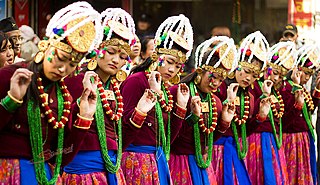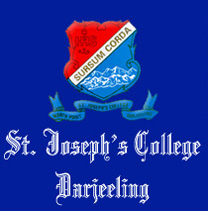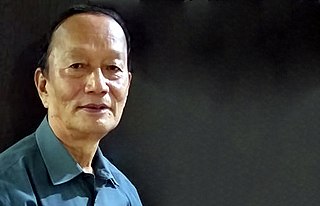Related Research Articles

Darjeeling is a city in the northernmost region of the Indian state of West Bengal. Located in the Eastern Himalayas, it has an average elevation of 2,045 metres (6,709 ft). To the west of Darjeeling lies the easternmost province of Nepal, to the east the Kingdom of Bhutan, to the north the Indian state of Sikkim, and farther north the Tibet Autonomous Region region of China. Bangladesh lies to the south and southeast, and most of the state of West Bengal lies to the south and southwest, connected to the Darjeeling region by a narrow tract. Kangchenjunga, the world's third-highest mountain, rises to the north and is prominently visible on clear days.

The South Asian Association for Regional Cooperation (SAARC) is the regional intergovernmental organization and geopolitical union of states in South Asia. Its member states are Afghanistan, Bangladesh, Bhutan, India, Maldives, Nepal, Pakistan, and Sri Lanka. SAARC comprises 3% of the world's land area, 21% of the world's population and 5.21% of the global economy, as of 2021.

Gurung or Tamu are an ethnic group indigenous to the hills and mountains of Gandaki Province of Nepal. Gurung people predominantly live around the Annapurna region in Manang, Mustang, Dolpo, Kaski, Lamjung, Gorkha, Parbat,Tanahun and Syangja districts of Nepal. They are one of the main Gurkha tribes.

The Tamang, are a Tibeto-Burman ethnic group of Nepal, Southern Bhutan and North India. In Nepal, Tamang people constituted 5.6% of the Nepalese population at over 1.3 million in 2001, increasing to 1,539,830 as of the 2011 census. The Tamang people are concentrated in the central hilly region of Nepal. Indian Tamangs are found in significant numbers in the state of Sikkim and the districts of Darjeeling and Kalimpong in West Bengal state. Bhutanese Tamangs are native to various districts in the southern foothills of the Kingdom of Bhutan. Such districts include the Tsirang District, the Dagana District, the Samtse District, the Chukha District, the Sarpang District and the Samdrup Jongkhar District. Tamang language is the fifth most-spoken language in Nepal.

The history of Sikkim begins with the indigenous Lepcha's contact with early Tibetan settlers. Historically, Sikkim was a sovereign Monarchical State in the eastern Himalayas. Later a protectorate of India followed by a merger with India and official recognition as a state of India. Lepchas were the main inhabitants as well as the Ruler of the land up to 1641. Lepchas are generally considered to be the first people, indigenous to Sikkim also includes Darjeeling.

Jawaharlal Nehru University is a public research university located in Delhi, India. It was established in 1969 and named after Jawaharlal Nehru, India's first Prime Minister. The university is known for leading faculties and research emphasis on social sciences and applied sciences.
Darjeeling district's population today is constituted largely of the descendants of the indigenous and immigrant labourers that were employed in the original development of the town. Although their common language, the Nepali language, has been given official recognition at the state and federal levels in India, the recognition has brought little economic progress to the region, nor significant political autonomy. A culture of both pride and dependence has evolved in the tea plantations where jobs have levelled off but housing can be inherited by a worker within the family. The population of Darjeeling meanwhile has grown substantially over the years. Many young locals, educated in government schools, have taken to migrating out for the lack of employment matching their skills. Like out-migrants from other regions of northeastern India, they have been subjected to discrimination and racism in some Indian cities.

St Joseph's College is a government-aided, Christian minority, co-educational college in West Bengal, India about 3 km north of downtown Darjeeling. It has been awarded Grade B+(3rd Cycle) by NAAC. It grew out of St. Joseph's School established in 1888. The college began in 1927 when it was affiliated to Calcutta University. In 1962 the college was affiliated with the newly established University of North Bengal Undergraduate programs include Liberal Arts, Commerce and Science, as well as Business Administration Mass Communication & Journalism and Computer Application.

Balmiki Prasad Singh was the 14th Governor of Sikkim, India. He is a retired IAS officer and has written books and articles relating to Indian culture, in particular the culture of North-East India. Among his prominent books are Bahudha and the post 9/11 World and The problem of change: a study of North East India.
Tan Chung is an authority on Chinese history, Sino-Indian relations and cultural exchange. He has been a doyen of Chinese cultural studies in India for nearly half a century.

Mahananda Poudyal was an Indian writer, teacher, social worker and political thinker.

South Asian University (SAU) is an international university sponsored by the eight Member States of the South Asian Association for Regional Cooperation (SAARC). The eight countries are Afghanistan, Bangladesh, Bhutan, India, Maldives, Nepal, Pakistan, and Sri Lanka. The university started admitting students in 2010 at a temporary campus at Akbar Bhawan, India. Since February 2023, the University is running on its permanent campus at Maidan Garhi in South Delhi, India, next to Indira Gandhi National Open University (IGNOU).
B. R. Deepak is an Indian sinologist. He is the first Indian to receive China's highest literary award.

Relations between Bhutan and Nepal were formally established in 1983. The two Himalayan countries are both landlocked, separated only by the Indian State of Sikkim. Both countries are bordered by India and the People's Republic of China. However, the current state of relations remains strained owing to the Bhutanese refugee crisis.

Indian Gorkhas, also known as Nepali Indians, are an ethno-cultural group native to India, who speak Nepali as a common language. They inhabit mainly the states of Sikkim, West Bengal, Northeast and Uttarakhand, including their diaspora elsewhere in India and abroad. The modern term "Indian Gorkha" is used to differentiate the Nepali language Speaking Indians from Nepalis.
Tanka Bahadur Subba is the present and second vice chancellor of Sikkim University in India Earlier, he was Head of Anthropology Department and Dean of School of Human and Environmental Sciences, North Eastern Hill University, Shillong, India. He was a gold medallist in MA in 1980 and his PhD, awarded in 1985 by University of North Bengal, was on "Caste, Class and Agrarian Relations in the Nepali Society of Darjeeling and Sikkim". Since then he has been researching on various aspects of the eastern Himalayas like ethnicity and development, cultural adaptation, politics of culture and identity, health and disease, and Nepali diaspora. Professor Subba has held prestigious academic positions throughout his career and has received awards like the Homi Bhabha Fellowship (Mumbai), Dr. Panchanan Mitra Lectureship and DAAD Guest professorship at the Free University of Berlin and Baden-Wuerttemberg Fellowship at the South Asian Institute of Heidelberg University.

Greater Nepal refers to the concept of a unified Nepal encompassing the territories within its borders during the period between 1791 and 1816. Extensive territories in the present-day Indian states of Uttar Pradesh, Bihar, West Bengal and some parts of Bangladesh were conquered during the unification campaign of Nepal led by King Prithvi Narayan Shah. The campaign ended with the Anglo-Nepalese War and the signing of the Sugauli Treatry between the Kingdom of Nepal and East India Company on March 4, 1816.

Professor Anvita Abbi is an Indian linguist and scholar of minority languages, known for her studies on tribal languages and other minority languages of South Asia. In 2013, she was honoured with the Padma Shri, the fourth highest civilian award by the Government of India for her contributions to the field of linguistics.
Bishal Nath Upreti is a geologist and academic at the Department of Geology, Tri-Chandra Campus, Tribhuvan University, Kirtipur, Kathmandu, Nepal.

Puran Andrew Gurung is an Indian Taekwondo practitioner and coach. He is a 9th dan Taekwondo professional and is known for establishing Taekwondo in India. Gurung founded his first Taekwondo gymnasium at Kalimpong in 1974 and by 1982 had become the most popular Taekwondo instructor in India. He established a vast chain of academies across the nation, and for his efforts towards promoting Taekwondo in India he was acknowledged by the then-Prime Minister Indira Gandhi. He was requested to train Indian National Congress' Seva Dal cadets. In 1983, Mrs. Gandhi asked him to join INC, which he readily accepted, where he is still serves as the General Secretary (Organiser) of the Seva Dal.
References
- ↑ "Title and profession of Mahendra P. Lama".
- ↑ "Prof. Mahendra P Lama". Sikkim University. Retrieved 1 September 2012.
- ↑ "Sikkim VC". The Telegraph. Archived from the original on 3 February 2013. Retrieved 1 September 2012.
- ↑ "Mahendra P. Lama (Ph.D., JNU)". Jawaharlal Nehru University. Retrieved 6 April 2013.
- ↑ "Mahendra P. Lama (Ph.D., JNU)". JNU. Retrieved 1 September 2012.
- ↑ "Mahendra P. Lama". The India China Institute. Archived from the original on 27 December 2013. Retrieved 6 April 2013.
- ↑ "Mahendra P. Lama". The University Press Limited. Retrieved 6 April 2013.
- ↑ "Mahendra P. Lama". The Indian Express ltd. Retrieved 6 April 2013.
- ↑ "President of India nominates Prof Lama to the NEHU's Executive Council". DarjeelingTimes. Archived from the original on 10 April 2013. Retrieved 11 April 2013.
- ↑ "Energising Connectivity between Northeast India and its Neighbours - Publications : ERIA". ERIA. February 2019. Retrieved 30 May 2019.
- ↑ "9788173872303 Globalisation and Cultural Practices in Mountain Areas Dynamics, Dimensions and Implications : Printsasia.in". Printsasia. Retrieved 30 May 2019.
- ↑ "Human Security in India: Discourse, Practices and Policy implications | The University Press Limited". The University Press Limited. Retrieved 30 May 2019.
- ↑ Lama, Mahendra P (1996). Gorkhaland movement: quest for an identity. Darjeeling: Published by Dept. of Information and Cultural Affairs, Darjeeling Gorkha Hill Council. OCLC 42763207.